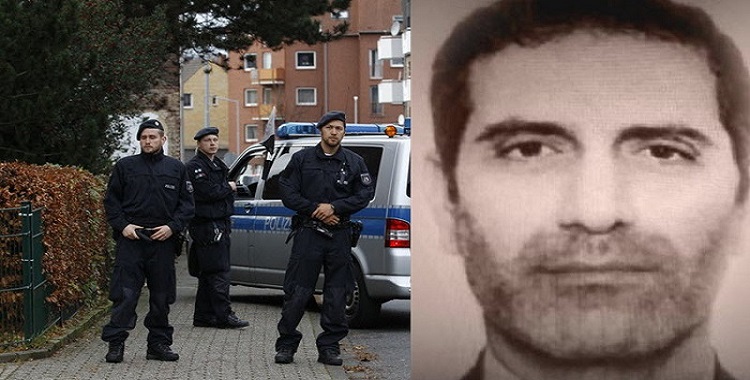The rules of engagement are changed by Assadi’s trial as Iran’s state terrorism is also proven in the European court
by Hassan Mahmoudi
Assadi’s conviction demonstrates the Belgian court’s recognition that the Iranian Foreign Ministry is involved in the export of terrorism…
In a hasty speech on Wednesday, February 3, Rouhani warned the United States and Europe that “no clause of the JCPOA will be changed.” and “no one will be added to the talks” … He was referring to the US-European plan to involve Saudi Arabia in the new JCPOA talks and to add a missile program containment clause and curtailment of the regime’s ambitions in the region to the JCPOA. He, whose wild dreams of a return to the Obama era are not being realized, seemed, like Ghalibaf, the speaker of parliament, to be hopeless and helpless in the face of the White House’s new stance. He accused the rest of the regime officials and said, “Some do not even swear once at the United States because they believe swearing is the job of the government and especially, the president himself.
The regime’s crisis over the fate of the JCPOA and regime gangs’ internal strife is the results of stalemate in the regime’s internal crisis and its foreign policy that it seeks to advance through state terrorism and blackmail, unaware that it no longer has the power and capacity to advance it.
One day after Rouhani’s speech, on February 4, the outcome of the trial of the Iranian diplomat Assadollah Assadi in Antwerp, Belgium, changed all the equations. Assadi was sentenced to 20 years in prison for transporting a bomb from Iran to Europe, handing it over to a couple there and directing them to blow up the 2018 annual conference of the National Council of Resistance of Iran.
The historic ruling of this court recognized the role of the Islamic Republic of Iran in international terrorism. Rouhani, as head of the regime’s Supreme Security Council has been responsible for advancing the terrorist plots and coordination of the Ministry of Intelligence (VAVAK) agents and mercenaries for the past three decades. Information from a green notebook found in Assadi’s rental car in the German state of Bavaria, where Assadi was first detained at a gas station showed that he was just a low-level employee at the Vienna embassy.
In fact, he was a high-ranking Iranian regime intelligence officer who, under the guise of a diplomat, led a network of spies and informants in 11 countries, including Germany, France, Austria, the Czech Republic, Hungary, Belgium, the Netherlands, and Italy, and paid cash to spies and agents. Zarif and the regime’s foreign ministry have always planned and controlled the foreign policies set by the regime’s Supreme Security Council and Khamenei and the Ministry of Intelligence to export terrorism and fundamentalism.
Zarif and the foreign ministry have been the body to establish diplomatic facilities to carry out terrorist plots and transfer bombs through diplomatic channels and the abuse of diplomatic immunity for espionage. Without the planning by the regime’s Supreme Security Council under Rouhani and the Foreign Ministry, Khamenei and the IRGC’s Quds Force could never have carried out their evil plans and interventions in the Middle East and their terrorist plots outside Iran against the opposition.
Assadi’s conviction demonstrates the Belgian court’s recognition that the Iranian Foreign Ministry is involved in the export of terrorism, including the transfer of ammunition and weapons to terrorists, money laundering, fabricating travel documents and organized guidance for spies. Between 2016 and 2020, seven regime terrorist diplomats, including an ambassador, were expelled from Europe for their involvement in terrorist plots.
Undoubtedly, the outcome of this court will change the rules of engagement of the international community with the regime and the regime will henceforth be encircled by international conflicts and crises. The fate of the JCPOA and dire sanctions will, it seems certain, change against the regime’s interests and will intensify the wave of protests inside Iran. Prior to the court ruling, the regime did its utmost, through its international supporters of appeasement policy, to save Assadi from the court under the guise of diplomatic immunity, but the court annulled the immunity in the first paragraph of its ruling, which rendered the argument of “diplomatic immunity” from the supporters of appeasement, dead upon arrival and futile!The Belgian court targeted Assadi, but really targeted the Islamic Republic of Iran in its entirety.
Hassan Mahmoudi is a Europe-based social analyst, researcher, independent observer, and commentator of Middle Eastern and Iranian Politics. He tweets under @hassan_mahmou1.



